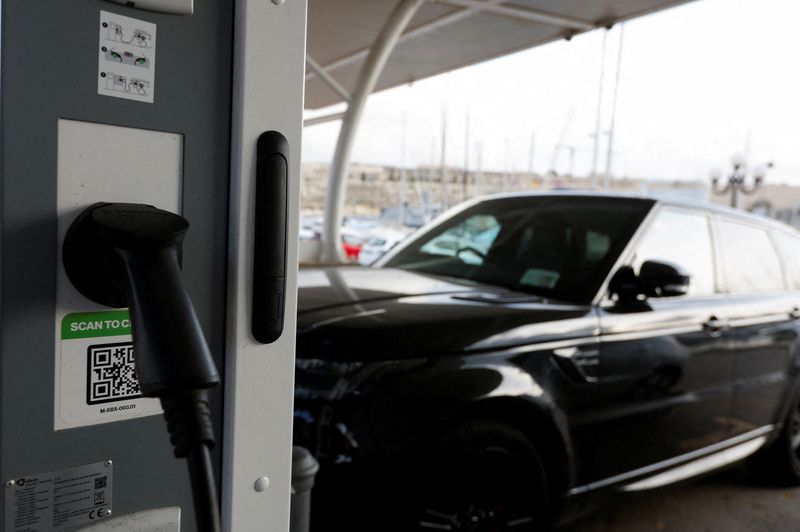LONDON (Reuters) - A growing number of automakers and suppliers are working on electric vehicle (EV) motors that either do not contain rare earths or dramatically reduce the use of materials that are dominated by China.
Here is a list of some of the products automakers and suppliers are working on or have completed as part of this process:
TESLA
Tesla (NASDAQ:TSLA) initially used induction motors without rare earth permanent magnets, but switched to a permanent magnet motor for the mass-market Model 3 in 2017.
The world's largest EV maker said earlier this year that it has cut heavy rare earths by 25% per vehicle and aims to go rare-earth free in its next-generation EV models.
BMW (ETR:BMWG)
BMW uses no rare earth permanent magnets today and has developed a magnet-free externally excited synchronous machine (EESM), which generates a magnetic field using electric current, that will be included in all of its next-generation EVs.
GENERAL MOTORS
The No. 1 U.S. automaker says it is "exploring options to limit or potentially eliminate rare earth materials in EV motors."
The company has also just invested in Niron Magnetics, a startup developing permanent magnets without rare earths, alongside rival automaker Stellantis (NYSE:STLA). Volvo (OTC:VLVLY) Cars is also an investor in Niron.
BORGWARNER
The U.S. supplier already has an EV motor in production that has reduced heavy rare earth content. The company also has an EV motor in development that is rare earth free.
JAGUAR LAND ROVER (JLR)
The luxury unit of Tata Motors (NYSE:TTM) is exploring using two motors on its next-generation EVs, one with rare earths and one without, to reduce its rare earth content per vehicle.
ZF
German supplier ZF has developed an EESM EV motor that could be in production in two years. The company is in talks to supply European, U.S. and Chinese automakers.
VITESCO
German supplier Vitesco previously produced an EESM EV motor for Renault (EPA:RENA) and has developed a new version that should be on the market in 2026.
The company is also working on rare earth free permanent magnets.
RENAULT
Renault used a Vitesco EESM EV motor in its Zoe and Kangoo models from 2011 to 2019 and is working on a rare-earth free EV motor with Valeo (EPA:VLOF) that should go into production in 2027. A Renault spokesperson said "things continue to progress well" in the joint project.
NISSAN
Nissan (OTC:NSANY) has developed an EESM EV motor for its Ariya crossover and is pursuing a dual strategy of EESM motors and gradually cutting rare earths out of permanent magnet motors.
MERCEDES-BENZ
Mercedes has reduced the heavy rare earth content in its next-generation MMA EV platform to "close to 0%." The German premium automaker says it aims to remove heavy rare earth content entirely.
TOYOTA
Toyota (NYSE:TM) is working on a permanent magnet with a 50% reduction in neodymium, a heavy rare earth.
BENTLEY
The luxury British unit of Volkswagen (ETR:VOWG_p) has been researching a motor with rare-earth free magnets and the automaker said it remains "very much committed" to the project.
MARELLI

Auto parts maker Marelli, owned by U.S. fund KKR, says it is "exploring the use of alternative materials for electric motors to meet (automakers') requirements for magnet-free motors," including "evaluating" EESM motors.
EuroGroup LaminationsElectric motor component maker EuroGroup Laminations is working on both rare earth free permanent magnet motors and motors with limited rare earth content for automaker customers.